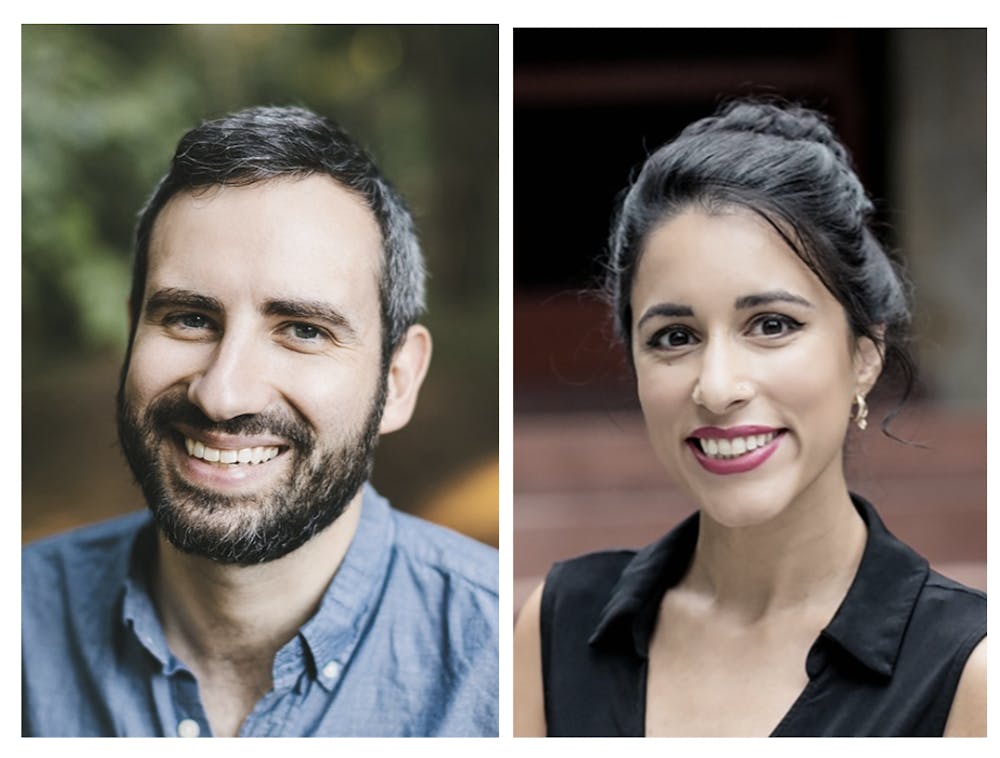The Hopkins, Esperanza and Loyola (HEAL) Refugee Health and Asylum Clinic opened its services to Baltimore last November. Created through a collaboration between Hopkins, the Esperanza Center and Loyola University Maryland, it is the first asylum clinic of its type in Baltimore.
HEAL serves clients who are seeking humanitarian protection after experiencing trauma, including human trafficking, torture, anti-LGBTQ violence, female genital mutilation, sexual and gender-based violence and persecution by gangs. So far, HEAL has treated clients seeking asylum from Guatemala, El Salvador, Honduras and Ethiopia.
Led by Nouf Bazaz and Dr. C. Nicholas Cuneo, HEAL aims to increase access to physical and psychological forensic evaluations for forced migrants and survivors of torture and trauma.
Bazaz emphasized the significance of this work for these vulnerable populations in an interview with The News-Letter.
“It’s an area where we can not just make a difference here locally, but nationally, because I think a lot of work has to happen with this population,” she said.
Bazaz, a clinical assistant professor at Loyola and founder of the Initiative for Counseling Survivors of War and Persecution, is HEAL’s mental health director. Cuneo, an assistant professor in pediatrics at the Hopkins School of Medicine, is HEAL’s medical director.
Both Bazaz and Cuneo worked at the International Rescue Committee (IRC) together and have known each other for over 10 years. After working on similar separate projects, they explained how they conceived of HEAL in 2020 in an interview with The News-Letter.
“You can do this work and be an island or a one-person show, but one, that’s not sustainable, and two, neither of us have the time or interest for that,” Bazaz said.
Bazaz wanted to start a refugee practice at Loyola after treating refugee clients. She was also interested in training counseling students to work in the field.
Cuneo started the refugee health partnership between Hopkins Medicine and the IRC. In 2020, Cuneo also created a virtual asylum clinic. The clinic collaborated with Physicians for Human Rights and local attorneys to train medical students in affidavit writing and forensic evaluation.
According to Cuneo, his own background in medicine and Bazaz’s background in mental health made the partnership a logical next step.
“It’s often a trap that these asylum clinics fall into — not having a built-in partnership between the medical and the mental health,” he said. “There’s this weird exceptionalization of mental health within health that still persists across our health system. In this space especially, it seems very limiting and very inappropriate because of the nature of trauma and this population. We were able to very deliberately and completely complement each other and create that space from the beginning.”
Cuneo explained their criteria in determining the best location for the clinic.
“I had realized, essentially, it makes a lot of sense to have asylum clinics where people would otherwise access care rather than the most convenient place for the trainees themselves,” he said.
Since the Esperanza Center Health Services Clinic already works with uninsured immigrants, most HEAL evaluations take place there. Bazaz also sees some clients at the Loyola Clinical Centers.
At HEAL, health-care providers, immigration attorneys and legal service organizations conduct physical and psychological forensic evaluations for those seeking legal protection. It partners with attorneys to do pro-bono legal work for asylum seekers and with Hopkins Community Connection to conduct screenings with clients to assess social determinants of health.
According to Cuneo, asylum seekers and others experiencing trauma often have little to no documentation of their abuse, making it difficult to gain legal protection in the United States.
Consequently, a forensic medical evaluation is needed to collect evidence of persecution or harm in those seeking immigration relief.
“What they have is evidence that is carried in their bodies and their minds because of past trauma they’ve been through,“ he said. “As evaluators, in a trauma-informed way, we try to be able to speak to the extent to which those findings corroborate their narrative of trauma.”
Bazaz explained that psychological evaluations attest to a client’s competency to engage with the legal process. Forensic affidavits significantly increase an applicant’s chance to be granted approval for legal protection by providing evidence of physical or psychological trauma.
She hopes that HEAL will continue to have a positive impact in Maryland.
“Historically in this area, there’s been a huge gap in services when it comes to youth and adolescents,” she said. “Even when I’m thinking of mental health services, for example, there’s virtually nowhere that refugee children can be seen for counseling. That’s a gap that we’re trying to bridge.”
Will Blair and Ellie Rose Mattoon, current Science and Technology Editors for The News-Letter, are volunteers at organizations affiliated with the HEAL Refugee Health and Asylum Clinic. They did not contribute to the reporting, writing or editing of this article.





